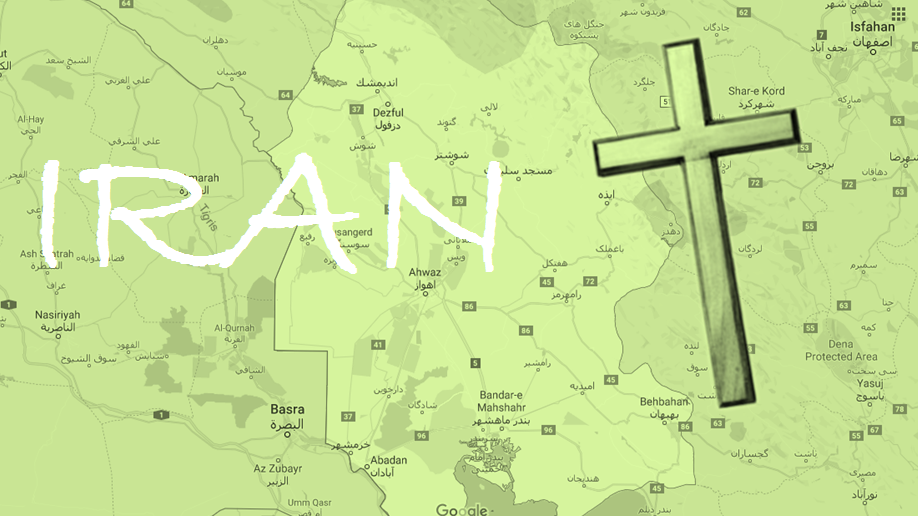Exile and pressure on family members as violations of Christians’ rights continued in 2019

Iranian Christians continued to suffer multiple violations of their right to freedom of religion of belief in 2019, Article18’s latest annual report reveals.
Mohabat news _ The report, a collaboration with Open Doors International, CSW and Middle East Concern, names 25 Christians arrested in 2019 and 13 Christians who received sentences of between four months and five years in prison for alleged “actions against national security”.
Criminal cases against many other Christians went unreported, either because no-one raised awareness – arresting authorities frequently issue threats to prevent publicity – or because those involved requested confidentiality.
At least 17 Christians were imprisoned at the end of 2019, all serving sentences based on national security-related charges.
The sentences of 16 other Christians were upheld, while many others continued to wait, indefinitely, for their court summons or result of their appeal.
Six Christians were released from prison during 2019, having completed their sentences, although one, Ebrahim Firouzi, was sent straight into “internal exile” for two more years in a remote city 1,000 miles from his home – the first time an Iranian Christian has endured such a punishment.
Unprecedented
Article18’s report notes that 2019 was the year in which Iranian intelligence agents began to harass family members of Iranian Christian converts who had fled the country, even though they may not be Christians themselves.
The report highlights the case of Vahid (Nathan) Roufegarbashi and his wife Mahsa, who now live in America. The parents of both were harassed by Iranian intelligence agents in 2019, and Mahsa’s father, Ismaeil Maghrebinejad, was arrested and charged with “propaganda against the state and insulting the sacred Iranian establishment”. He has just been sentenced to three years in prison.
2019 was also a year in which Christians were denied education. Christian convert Yousef Nadarkhani, who is serving a 10-year prison sentence in Tehran’s Evin Prison, went on a three-week hunger strike in September to protest against the denial of education to his two children, Danial, 17, and Youeil, 15.
Youeil was barred from school because he refused to take Islamic classes, while Danial was only readmitted to his school as a “guest”.
And in December fellow Christian convert Fatemeh Mohammadi, 21, was kicked out of university, without explanation, on the eve of her exams.
Just a few weeks later she was arrested, and at the time of writing her family have no knowledge of her whereabouts and remain very concerned for her safety.
Hate speech against Christians was another trend that continued in 2019, as religious and political leaders in Iran continued to speak out against Christianity and assert that Christian converts, as apostates from Islam, should be put to death.
Persian-speaking churches remained closed, while Christians continued to face challenges in obtaining Bibles and Christian literature. Bibles and related literature were consistently confiscated in searches by Iranian security agents, and it was reported that a bookseller, Mostafa Rahimi, was arrested in Bukan and sentenced to three months plus one day in prison for selling Bibles.
All the while, the battle between appearance and reality continued, as Iranian leaders repeatedly claimed that Christians, as a recognised religious minority, enjoyed full religious freedom.
Meanwhile, Christian converts, who are not recognised as Christians, were being rounded up in raids across the country, while even the “recognised” Christians of Assyrian and Armenian descent continued to be treated as second-class citizens.
This pressure on Christians – both recognised and unrecognised – continued to lead hundreds of Christians to flee the country.
The treatment of Christian prisoners also caused concern. In December, Zaman (Saheb) Fadaei, another Christian serving a 10-year sentence in Evin Prison, was suffering from a severe fever, but after initially being given medication he was denied further treatment despite the continuation of his symptoms.
2019 ended with the discovery that the grave of Rev. Hussein Soodmand, the only Christian to have been officially executed for “apostasy”, had been desecrated.
His family told Article18 the discovery “wounded our hearts yet again”.
And 2020 has begun in much the same vein, with the incarceration of Ramiel Bet-Tamraz, the son of an Assyrian-Iranian pastor, the arrest of Christian convert Fatemeh Mohammadi, and the sentencing of Ismaeil Maghrebinejad.
Recommendations
Article18’s report calls on Iran, as a signatory of the International Covenant on Civil and Political Rights, and the Universal Declaration of Human Rights, to:
immediately and unconditionally release all Christians detained on spurious charges related to their faith or religious activities.
uphold the right to freedom of religion or belief for every citizen, regardless of their ethnic or linguistic background, including converts from other religions.
return confiscated churches, properties, and material belongings confiscated from Christians and other religious minorities.
cease to use provisions such as Articles 220, 498, 499 and 500 of the Penal Code and Article 167 of the Iranian Constitution to unjustly detain minority-faith adherents.
guarantee the right to counsel to all individuals charged with national security-related crimes, as well as the right to be represented by a lawyer of their choice.
Article18 also calls on members of the international community to hold Iran accountable for upholding its obligation to ensure and facilitate freedom of religion or belief for all of its citizens by highlighting this issue during political and/or economic discussions with, or concerning, Iran.
Article18 thanks the UN Special Rapporteur on Human Rights in Iran for highlighting Iran’s mistreatment of Christians, especially converts, and asks for the UN Special Rapporteur on Freedom of Religion or Belief to conduct his own investigation.
